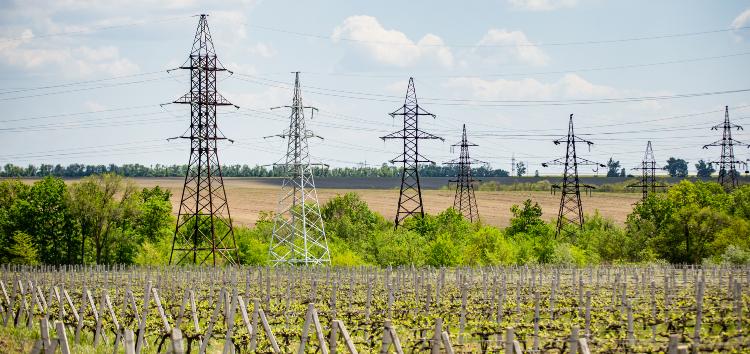- EBRD lends €30.8 million to Moldova to link to European electricity grid via Romania
- Project costing €77 million to be co-financed by European Investment Bank, EU
- Moldova implements EU Third Energy Package
The EBRD is lending €30.8 million to Moldova and its state-owned electricity company Moldelectrica to link the country’s network to that of its European Union neighbour, Romania, by constructing a high-voltage transmission line between the Moldovan city of Balti and the Romanian border.
Moldelectrica, which is implementing the European Union’s Third Energy Package, will also use the loan to rehabilitate its internal electricity transmission network and build a 400 kV (kilovolt) substation at Balti.
The Balti-Suceava project, costing a total of €77 million, is co-funded by the European Investment Bank (EIB), which is also lending €30.8 million. The European Union’s Neighbourhood Investment Platform (NIP) will provide a €15.4 million grant.
The project’s aim is to increase Moldova’s energy security by accelerating the country’s integration with the European grid, ENTSO-E, as well as to strengthen the country’s integration with its European neighbours.
The loan agreement was signed in Chisinau by the EBRD’s Head of Moldova, Catarina Bjorlin Hansen, and Moldova’s Energy Minister, Victor Parlicov.
More than 80 per cent of electricity consumed domestically in Moldova came historically from the unrecognised breakaway region of Transnistria, along with imports from Ukraine via a grid connecting several former Soviet republics. Moldova has been working since 2015 to diversify sources through closer links with Romania and has one interconnection line to Romania (the Vulcanesti-Issaccea line).
However, the start of Russia’s full-scale war on neighbouring Ukraine in 2022 interrupted this process. Both Moldova and Ukraine quickly synchronised with the European grid after Russia invaded Ukraine. The Balti-Suceava line will further strengthen integration with ENTSO-E.
After rehabilitating a number of substations, transformers and transmission lines through a project financed by the EBRD in 2012, Moldova will now also increase the reliability of electrical supply to consumers by modernising several substations.
A key element of the project is that Moldova will commit to continue implementing the Power Sector Reform Action Plan, agreed in close collaboration between the EBRD, EU, EIB, World Bank, Energy Community Secretariat and government of Moldova. This introduces a comprehensive reform package to implement the EU Third Energy Package in Moldova’s electricity market.
The EBRD, Moldova’s largest institutional investor, has substantially increased its investments in the country since 2022. To date it has invested nearly €2.3 billion in 172 projects.




